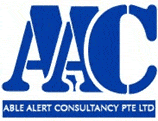17 Sep 2021
Speeches
OPENING REMARKS BY MR ZAQY MOHAMAD,
SENIOR MINISTER OF STATE FOR MANPOWER
AT THE DIVING SAFETY SEMINAR ON 17 SEPTEMBER 2021
Mr John Ng, Chairman, Workplace Safety and Health Council;
Mr Silas Sng, Commissioner for Workplace Safety and Health;
Mr Alexis Chee, Chairman, Commercial Diving Association Singapore (CDAS)
Friends and colleagues;
A very good afternoon to you,
1. Thank you for inviting me to speak at today’s Diving Safety Seminar. I would like to thank CDAS for taking the initiative to organise this annual seminar. It shows their dedication and commitment in taking care of the safety and health of divers. Divers play a crucial role in Singapore being a maritime hub, and deserve to have as safe a work environment as possible.
2. But the job has its share of risks. There was a spate of commercial diving accidents in 2018, including two fatal accidents. Let me share one such incident. A commercial diver was deployed to clean the hull of a cargo vessel, when his communication cord became entangled with the seabed. He repeatedly called for help over the intercom, but did not receive any assistance. After some struggle, he unfortunately ran out of air and passed away, leaving behind a wife and three young children. The diving supervisor and diving superintendent, who were responsible for monitoring his dive, were both later found to have not been paying attention to the radio when the incident occurred.
3. The diving supervisor was sentenced to 12 months’ jail, and the diving superintendent was sentenced to two years’ jail for their negligence. This fatality is a grim reminder that all stakeholders must take responsibility for the safety and health of our commercial divers. No matter how experienced you may be, one small misstep, or one small act of negligence, can lead to disastrous results. If the diving supervisor and superintendent had followed the safety protocols and responded to the diver’s calls for assistance, as they were supposed to, he might still be with his family today.
4. Together with enforcement by regulatory agencies and continuous engagement with the industry by CDAS, there have been no fatal commercial diving cases since August 2018. But there are still instances of unsafe practices. For example, some divers still use incorrect equipment, such as recreational self-contained underwater breathing apparatus (SCUBA) gear, for commercial diving. This is a serious lapse that could potentially be fatal as recreational SCUBA gear does not possess the necessary safety features for commercial diving. We cannot afford to let our guard down; the safety of commercial divers during every diving operation should be a priority.
Visit to Commercial Diving Training Centre
5. In order to do so, our divers and diving supervisors, must be well-trained in safety drills and protocols, and well-equipped with proper diving gear. Last week, I visited a commercial diving training centre to learn how safety has been incorporated into their training curriculum. I was heartened to learn that trainees undergo extensive practical learning through various simulated diving scenarios.
6. Before any dive, the diving team has to perform rigorous checks on their diving equipment and gear to ensure that they are fully functional as the diver’s life depended on the equipment working properly. This includes a camera as well as communication devices that are attached to the diver’s headgear, to allow the diving supervisor on the surface to monitor the diver underwater, and render assistance or activate rescue operations if necessary. The diving supervisor also constantly monitor every aspect of the dive, including the depth and oxygen levels, and leads the dive operation through clear communication to those underwater.
7. These thorough safety checks play a vital role in ensuring the safety of our commercial divers. I encourage all of you to adopt these good practices, and keep commercial diving a safe vocation.
Launch of Revised Guidelines
8. In addition to a robust training curriculum, a clear set of workplace safety and health guidelines are important to set industry standards. This is why I am pleased to announce the launch of the revised WSH Guidelines for Inland and Inshore Commercial Diving today. The guidelines, previously known as the Technical Advisory for Inland and Inshore Commercial Diving, were revised in consultation with the WSH Council Commercial Diving Working Group, which comprised representatives from the Association of Singapore Marine Industries, the Commercial Diving Association Singapore, the Maritime Port Authority of Singapore, the Ministry of Manpower, and the Shipbuilding and Marine Engineering Employees Union, among other industry partners.
9. The revised guidelines enhance the safety and health practices within the commercial diving community. These guidelines will also be taken as reference when inspections are carried out on diving operations. They provide further clarifications on certain situations and scenarios that divers encounter in their day-to-day job. These include:
a. The strict use of ‘Commercial self-contained underwater breathing apparatus (CSCUBA)’ as opposed to using the recreational SCUBA gear, which lacks the necessary safety features for commercial diving
b. Enhancing the risk management section to address the common hazards in commercial diving, as well as the suggested risk controls. For example, ensuring the communication and diving equipment are in proper working order before commencing a diving operation.
I highly encourage all of you – especially diving companies and ship owners – to adopt the guidelines. They make your safety obligations clear, when you engage commercial divers.
Conclusion
10. Seminars, such as this one, are testament to the industry’s commitment towards raising the bar and providing a safer working environment for all. Let us work together to ensure that everyone goes home safely to their families.
11. I wish you all a fruitful session ahead. Thank you.
